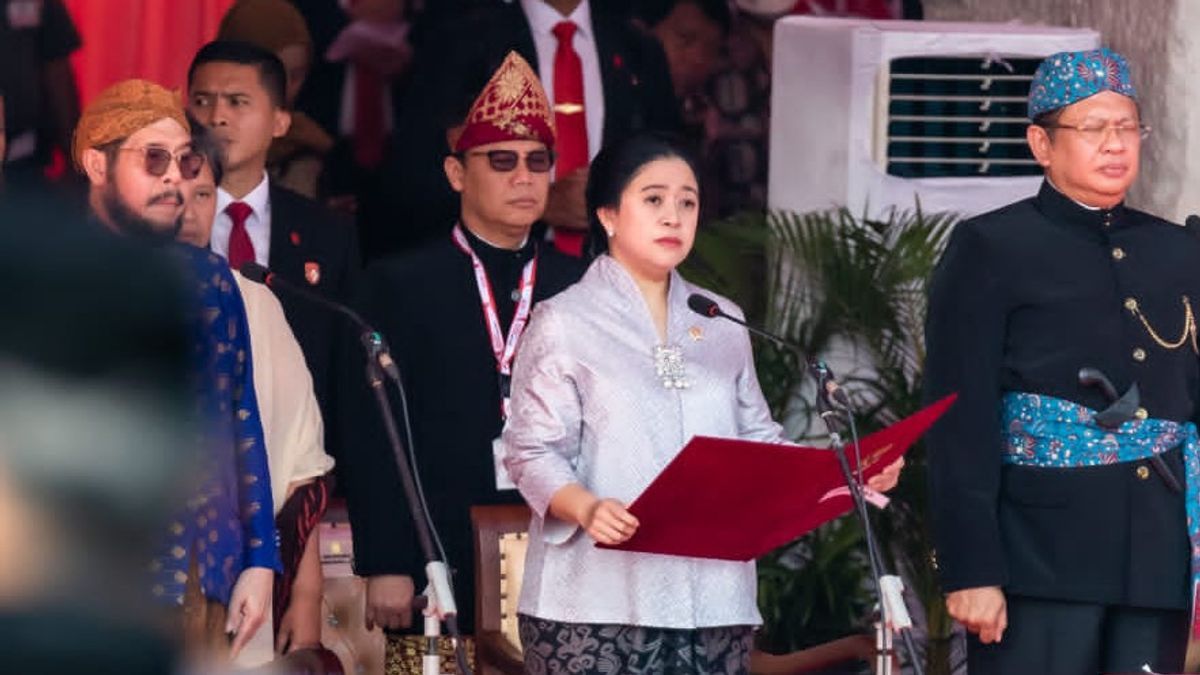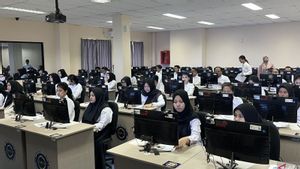JAKARTA - Chairman of the Indonesian House of Representatives, Puan Maharani, again urged the government to immediately issue technical regulations for Law Number 12 of 2022 concerning the Crime of Sexual Violence (TPKS Law).
Responding to this, a political communication observer from the University of Indonesia, Ari Junaedi, views that the government needs to respond to Puan's insistence, considering that Indonesia is facing an emergency situation of sexual violence.
"I agree, as Puan Maharani continues to voice that the TPKS Law is not optimal in the midst of rampant cases of sexual violence because there are no technical rules," said Ari on Friday, June 2.
According to Ari, the issuance of implementing regulations as an implementation of the TPKS Law can be carried out immediately. Moreover, the pressure has also come from various circles.
“Both from the DPR, including leaders, Legislation Body (Baleg), Commission III of the DPR and Commission VIII of the DPR, have continued to remind. Activists also always speak up so that the Government should give a quick response, ” he explained.
The incessant pressure from the DPR RI, Ari's view, should serve as a reminder to the government for the implementation of the TPKS Law because it is an important step in ensuring better protection for victims of sexual violence. Ari considered that the TPKS Law could also enforce the law in cases of sexual violence more fairly.
"The rise of cases of sexual violence has become an alert for the Government to evaluate the legal system for handling cases of sexual violence. The TPKS Law reinforces the punishment for perpetrators of sexual harassment and violence so that the issuance of technical rules has become an urgent need,” he said.
Previously, the Chairman of the Indonesian House of Representatives, Puan Maharani, again urged the Government to prioritize the issuance of implementing regulations as a derivative of the TPKS Law regulations.
"Sexual violence cases in Indonesia have become an iceberg phenomenon. The TPKS Law has been passed for more than a year, but it has not been implemented effectively because the technical rules have not been issued yet," said Puan, Wednesday, May 31.
Based on Article 91 of the TPKS Law, implementing regulations are set no later than two years after this Law is enacted. Even so, the Government should be able to accelerate the issuance of derivative regulations for the TPKS Law considering that cases of sexual violence are an emergency in Indonesia.
"The finalization of the technical rules of the TPKS Law must be a priority considering that we are facing an emergency situation of sexual violence, there must be a quick movement from the Government," continued Puan.
According to a report by the Ministry of Women's Empowerment and Child Protection (KemenPPPA), there were 11,016 cases of sexual violence in 2022. Of these, cases of sexual violence against children reached 9,588, where there was an increase from the previous year which amounted to 4,162 cases.
Then the National Commission (Komnas) for Women noted that cases of sexual violence were the most reported in 2022. There were 2,228 cases containing sexual violence or 65 percent of the total 3,422 cases of gender-based violence.
“ There have been so many cases of sexual violence in Indonesia. How long do you want to wait? The settlement should not only stop with the punishment of the perpetrators. In addition to victim rehabilitation, prevention efforts must be a priority, ” said Puan.
Puan said that the problem of sexual violence should have been applied to the TPKS Law if there were technical rules. Meanwhile, law enforcement officers to date only use Law Number 1 of 2016 concerning the Child Protection Law in cases of underage sexual violence.
“ In fact, cases of sexual violence can be more effective if law enforcers apply articles in the TPKS Law. Moreover, in the TPKS Law there are additional penalties if the perpetrators work as public servants, ” explained Puan.
また読む:
The English, Chinese, Japanese, Arabic, and French versions are automatically generated by the AI. So there may still be inaccuracies in translating, please always see Indonesian as our main language. (system supported by DigitalSiber.id)


















